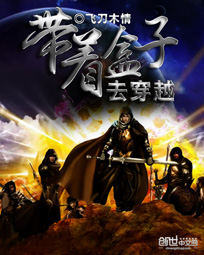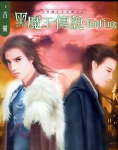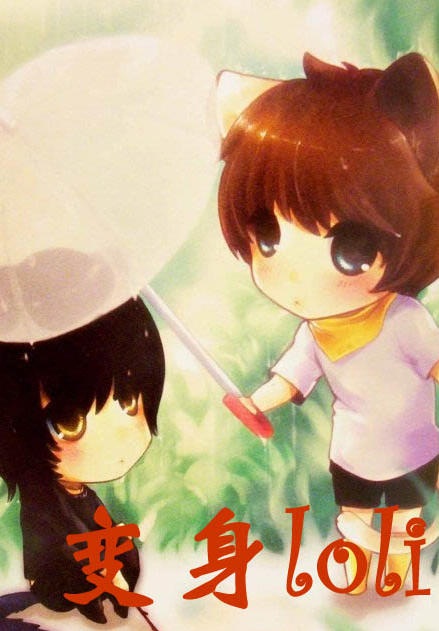wgolding.lordoftheflies-第57部分
按键盘上方向键 ← 或 → 可快速上下翻页,按键盘上的 Enter 键可回到本书目录页,按键盘上方向键 ↑ 可回到本页顶部!
————未阅读完?加入书签已便下次继续阅读!
is my main criticism of what is in many ways a work of real distinction; and for two reasons it appears to be a serious one。 In the first place the fault is precisely that which any fable is likely to incur: the inplete translation of its thesis into its story so that much remains external and extrinsic; the teller's assertion rather than the tale's enactment before our eyes。 In the second place the fault is a persistent one; and cannot easily be discounted or ignored。 It appears in expository annotations like this; when Ralph and Jack begin to quarrel:
The two boys faced each other。 There was the brilliant world of hunting; tactics; fierce exhilaration; skill; and there was the world of longing and baffled monsense。
Less tolerably; it obtrudes itself in almost everything… thought; action; and hallucination…that concerns the clairvoyant Simon; the 〃batty〃 boy who understands 〃mankind's essential illness;〃 who knows that Ralph will get back to where he came from; and who implausibly converses with the Lord of the Flies。 Some warrant is provided for this clairvoyance in Simon's mysterious illness; but it is inadequate。 The boy remains unconvincing in himself; and his presence constitutes a standing invitation to the author to avoid the trickiest problems of his method; by menting too baldly on the issues he has raised。 Any writer of fables must find it hard to ignore an invitation or this kind once it exists。 Golding has not been able to ignore it; and the blemishes that result impose some serious; though not decisive; limitations on a fiery and disturbing story。
Introduction1
IAN GREGOR and MARK KINKEAD…WEEKES
The urge to put things into categories seems to satisfy some deep human need and in this matter at least; critics and historians of literature are very human people indeed。 A brief glance at the English Literature section of any library catalogue will show what I mean。 There we find literature divided up into various lands of writings; and within the kinds we nave historical periods; and within the periods we have groups or movements; and within the groups individuals who write various kinds。 。 。 。 Now up to a point of course this sort of classification serves a very useful purpose。 We need a map if we are going to do any exploring; and the fact that it is the countryside we have e to enjoy; not the map; doesn't make the map any less necessary。 If we take out a map of The Novel we find; if it is a general one; that it falls into three sections…the eighteenth…century novel; the Victorian novel; and the modern novel。 And these descriptions point not simply to three centuries; but to decisive changes that have taken place within the form of the novel。 These changes are often due to historical circumstances; and sometimes they can be described in terms of the ruling ideas of the age or the literary expectations of the readers; out there are other changes and shifts in fiction which seem to arise from the very nature of the novel itself。 A shift of this land may be seen in a useful classification into 〃fables〃 and 〃fictions。〃 It is a little
1。 This essay appears as the Introduction to the 〃School Edition〃 of Lord of the Flies published by Faber and Faber; Ltd。; London; 1962; pp。 i…xii。 It is reprinted here by permission of Faber and Faber and the authors。
difficult to define this difference satisfactorily in the abstract; but it is fairly easy to see what is meant in practice。 When; for instance; D。 H。 Lawrence wrote in one of his letters; 〃I am doing a novel which I have never grasped。 Damn its eyes; here I am at page 145 and I've no notion what it's about 。 。 。 it's like a novel in a foreign language which I don't know very well;〃 he was almost certainly occupied in writing a fiction and not a fable。 In other words; a fiction is something which takes the form of an exploration for the novelist; even if it lacks the very extreme position which Lawrence describes; the concern is very much with trying to make clear the individuality of a situation; of a person; for these reasons it is extremely difficult to describe a fiction satisfactorily in abstract terms。 With a fable; on the other hand; the case is very different Here the writer begins with a general idea…〃the world is not the reasonable place we are led to believe;〃 〃all power corrupts〃 …and seeks to translate it into fictional terms。 In this kind of writing the interest of the particular detail lies in the way it points to the generalization behind it。 It is generally very easy to say what a fable is 〃about;〃 because the writers whole purpose is to make the reader respond to it in precisely that way。 Clear examples of fiction in the way I am using the word would be works like D。 H。 Lawrence's Sons and Lovers or Emily Bronte's Withering Heights; clear examples of fable; Swift's Gulliver's Travels or Orwell's Animal Farm。 But these are extreme works and most novels have elements of both。 Oliver Twist; for instance; is certainly a fiction in its portrayal of the intensely imagined criminal world; but it also moves towards fable when ft describes the world of the poorhouse; and the people who finally rescue Oliver from that world; because here Dickens is moved to write primarily by abstract ideas; the educational hardships of children; the wisdom of benevolence。 You will notice I said that Oliver Twist 〃moves towards〃 fiction; 〃moves towards〃 fable; and in this kind of alternation it is typical of many novels which lie between such extreme examples as I mentioned above。 Now when we turn to Mr。 Golding's Lord of the Flies we find that what is remarkable is that it is a fable and a fiction simultaneously。 And I want to devote the remainder of this Introduction to developing that remark。
When we first begin to write and talk about Mr。 Golding's novel; it is the aspect of fable which occupies our attention。 And this is very natural because the book is a very satisfying one to talk about Mr。 Golding; our account might run; is examining what human nature is really like if we could consider it apart from the mass of social detail which gives a recognizable feature to our daily lives。 That 〃really〃 is important and you may want to argue about it; but Mr。 Golding's assumption here is one that most of us make at one time or another。 〃Of course;〃 we say of someone; 〃he's not really like that at all;〃 and then we go on to construct an account which assumes that a distorting film of circumstance hate e between us and the man's 〃real self。〃 What Mr。 Golding has done in Lord of the Flies is to create a situation which will reveal in an extremely direct way this 〃real self;〃 and yet at the same time keep our sense of credibility; our sense of the day…to…day world; lively and sharp。 It is rather like performing a delicate heart operation; but feeling that the sense of human gravity es not through the actual operation but through the external scene …the green…robed figures; the arc light which casts no shadow; the sound of a car in the street outside。 And it was in Ballantyne's Coral Island; a book published in the middle of the last century; that Mr。 Golding found the suggestion for his 〃external scene。〃 This is not a question of turning Ballantyne inside out; so that where his boys are endlessly brave; resourceful and Christian; Mr。 Golding's are frightened; anarchic and savage; rather Mr。 Golding's adventure story is to point up in a forceful and economic way the terrifying gap between the appearance and the reality。 We do not need to know Coral Island to appreciate Lord of the Flies; but if we do know it we will appreciate more vividly the power of Mr。 Golding's book。 If we take Ralph's remark about 〃the darkness of man's heart〃 as ing very close to the subject of the book; it is worth just remembering that this book; published in 1954; was written in a world very different from Ballantyne's; one which had seen within twenty years the systematic destruction of the Jewish race; a world war revealing unnumbered atrocities of what man had done to man; and in 1945 the mushroom cloud of the atomic bomb which has e to dominate all our political and moral thinking。
Turning from these general considerations of Mr。 Golding's fable to the w


![[LOL]爱的双排封面](http://www.9wshu.net/cover/12/12832.jpg)



